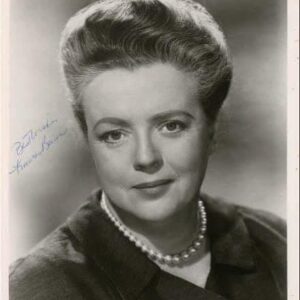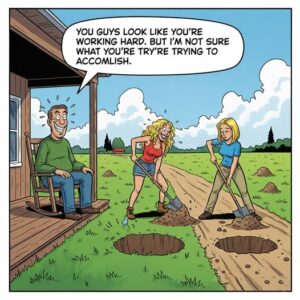Robin Williams’ Final On-Screen Line Continues to Break Hearts
Robin Williams remains one of the most beloved actors of all time, a man whose humor, warmth, and humanity touched millions. His sudden death in August 2014 shocked the world. Known for his roles in Good Will Hunting, Dead Poets Society, Mrs. Doubtfire, and countless others, Williams seemed unstoppable—a man whose boundless energy and quick wit hid any trace of darkness. But behind the laughter, his mind was under siege from a rare and devastating disease.
At first, the world assumed depression and old struggles with addiction had driven him to take his own life. It was only later, after the autopsy, that the truth emerged: Robin Williams had been suffering from severe Lewy body dementia, a brutal and fast-progressing neurological disorder that affects memory, movement, and behavior.
His wife, Susan Schneider Williams, revealed how little they understood of what was happening while he was alive. “The doctors said to me after the autopsy: ‘Are you surprised that your husband had Lewy bodies throughout his entire brain and brain stem?’ I didn’t even know what Lewy bodies were,” she told The Guardian in 2021. “But I said, ‘No, I’m not surprised.’ The fact that something had infiltrated every part of my husband’s brain—that made perfect sense.”
The illness had been ravaging his body and mind, making everyday life increasingly unbearable. Speaking to Today in 2020, Schneider Williams recalled Robin’s haunting words: “Robin and I knew there was so much more going on. He was right when he said to me, ‘I just want to reboot my brain.’ In that moment, I promised him we’d get to the bottom of this—I just didn’t know that would be after he passed.”
Lewy body dementia is the second most common form of degenerative dementia after Alzheimer’s. According to the National Institute on Aging, it can cause severe problems with thinking, memory, movement, and mood. It’s a relentless disease that leaves no part of the brain untouched. Dr. Bruce Miller, director of Memory and Aging at the University of California, San Francisco, described Williams’ case as one of the worst he had ever seen. “This was about as devastating a form of Lewy body dementia as I had ever seen,” he told Today. “It really amazed me that Robin could walk or move at all.”
Even as his mind was deteriorating, Williams continued to work. His energy and professionalism never faltered publicly. One of his final roles was as President Theodore Roosevelt in Night at the Museum: Secret of the Tomb. In that film, his last line, “Smile, my boy—it’s sunrise,” struck audiences deeply. In hindsight, it feels almost prophetic, as if Williams was saying goodbye with grace and tenderness, encouraging us to keep smiling even after he was gone.
But that wasn’t his final onscreen moment. His last live-action performance came in the 2015 drama Boulevard, released after his death. The film portrays a man grappling with loneliness and unfulfilled dreams—an eerie reflection of the turmoil Williams himself endured. His final words on screen were simple yet profound: “I drove down a street one night. A street I didn’t know. It’s the way your life goes sometimes. I’ll drive down this one and another. And now, another.”
Fans have since described those words as “hauntingly beautiful.” They carry a quiet melancholy, a sense of wandering through life’s twists and turns without knowing where the road leads. In many ways, they sum up Williams’ own journey—a man driven by curiosity, compassion, and the desire to bring joy, yet battling demons no one could see.
The tragedy of Robin Williams’ final years lies in how misunderstood his illness was. Even he couldn’t make sense of what was happening to him. Schneider Williams has spoken openly about how the disease distorted his reality, causing intense anxiety, paranoia, and confusion. “He wasn’t in his right mind,” she said. “Lewy body dementia is a killer. It’s fast. It’s progressive. It’s devastating.”
In the HBO documentary Come Inside My Mind, a clip from an old interview showed a chilling glimpse of his fears. Asked what scared him most, Williams replied, “I guess I fear my consciousness becoming, not just dull, but a rock. I couldn’t spark.” That statement, once taken as a throwaway reflection, now feels like a premonition. His greatest fear became his reality—his brilliant mind trapped within a failing brain.
Despite his suffering, Williams kept performing, kept giving, and kept making others laugh. That resilience was part of what made his loss so painful. People who had found hope, comfort, and laughter through his films were left asking how someone who gave so much light could have been living in such darkness.
In the years since his death, awareness of Lewy body dementia has grown significantly, thanks in large part to Schneider Williams’ advocacy. She has dedicated herself to educating the public and supporting research so that other families don’t endure the same confusion and helplessness she and Robin faced. “We had no idea what we were fighting,” she has said. “If we had known, maybe things would have been different. Maybe not. But at least we would have understood.”
Robin Williams’ legacy is more than his movies or his comedy—it’s the compassion, authenticity, and deep humanity he brought to every role. From the heartfelt wisdom of Good Will Hunting to the unrestrained joy of Aladdin, he reminded the world that humor and pain often live side by side. His work continues to inspire and comfort people of all ages, long after his passing.
His final on-screen words—about driving down unknown streets—now read like a metaphor for life itself. We never know where the next turn will take us. For Williams, the journey ended too soon, but his light continues to guide others through their own roads, unknown and unpredictable.
If you or someone you know is struggling or in crisis, help is available. Call or text 988 or chat at 988lifeline.org.
Robin Williams once said that laughter was his way of connecting to others, of reminding people they weren’t alone. Even in death, that remains true. His performances live on as proof of a life that, though cut short, burned brighter than most. Somewhere out there, we can imagine him still driving down another street—still searching, still exploring, still making people smile.
Rest in peace, Robin Williams. The world will never forget the joy you brought, the tears you inspired, and the humanity you embodied.





